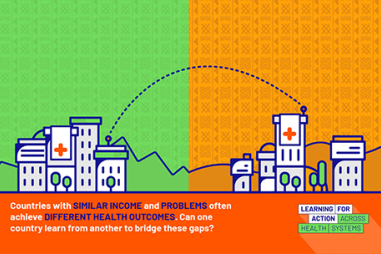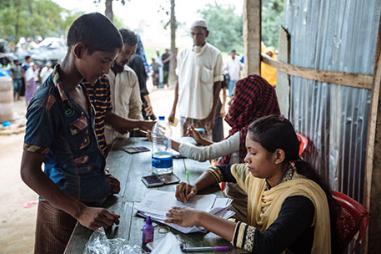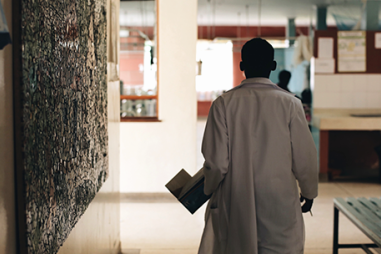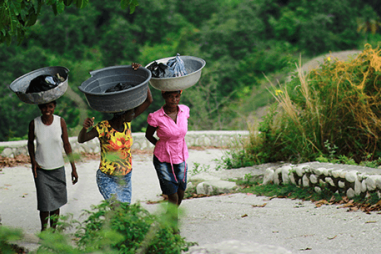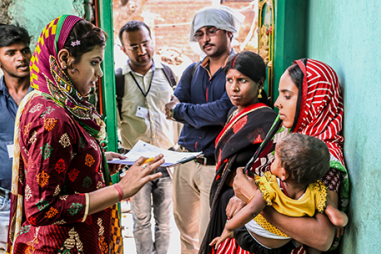Health monitoring, evaluation, research, and learning
We actively engage with clients throughout the programme cycle to ensure that the evidence we provide can be easily understood and translated into actionable and user-oriented recommendations for change.
To maximise the uptake of our findings and recommendations, we use participatory models of knowledge sharing that recognise local knowledge and local people as key actors to facilitate their own change. Collaboration between teams based in the programme countries and global experts allows us to combine expertise and share and strengthen capacities.
We produce evidence for learning and decision making through the delivery of following types of activities:
- Various types of independent evaluations, including formative, process, and impact evaluations of a diverse range of programmes, including multi-country portfolio initiatives, global and regional strategies, single interventions at different scales and levels, and research programmes.
- Our evaluations use a combination of quantitative and qualitive methods;
- Operational research (including rapid real-time assessments);
- Strategic reviews, results synthesis, and systematic reviews;
- Third party monitoring of complex TA and implementation programmes;
- Data quality assessments; and
- Strengthening of research uptake through learning platforms and knowledge sharing initiatives.
Our MERL work covers multiple health areas, including:
- Maternal, newborn and child health, including early childhood development;
- AIDS, tuberculosis, malaria and other communicable diseases;
- Non-communicable diseases and mental health;
- Sexual and reproductive health and family planning;
- Health financing and Universal Health Coverage;
- Health systems governance and management;
- Health systems resilience and public health emergency management
- Health system research and information systems;
- Health workers, including community health workers and managers
- Medical supplies, including vaccine supply chains; and
- Community engagement.
Our team
View all OPM staffFeatured
